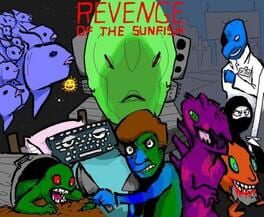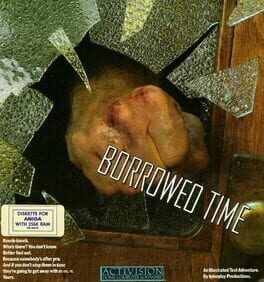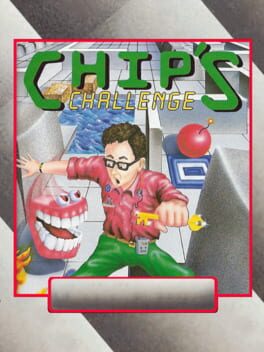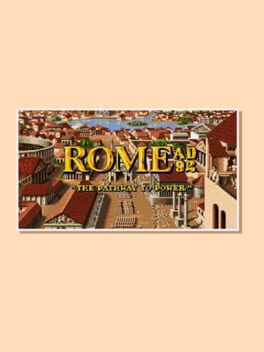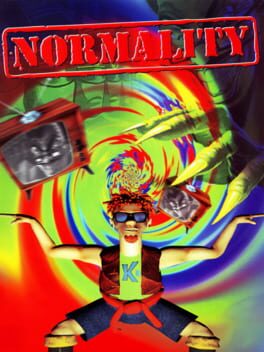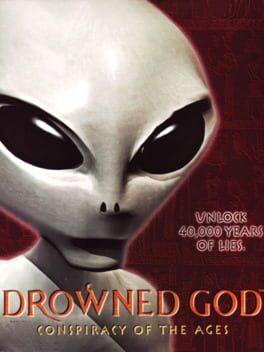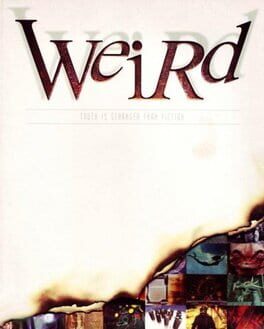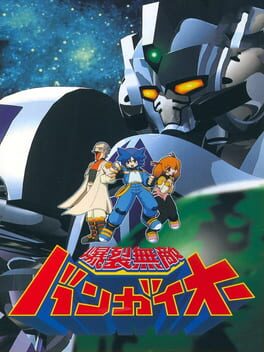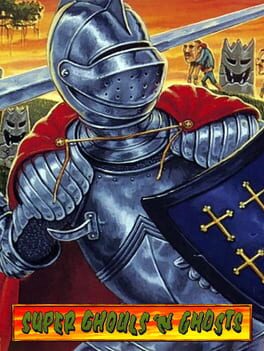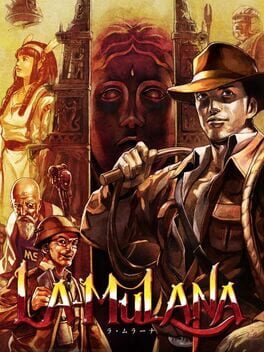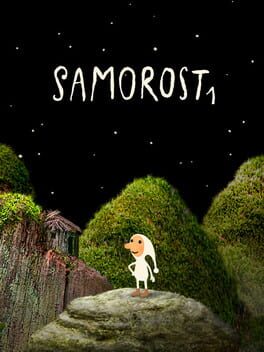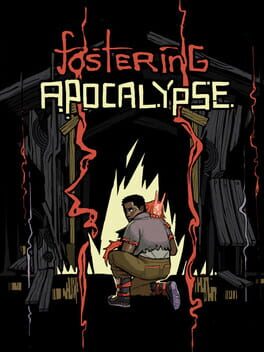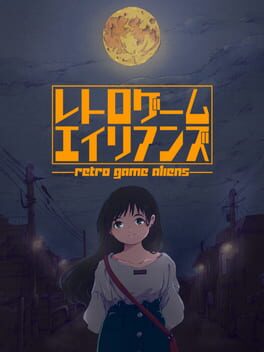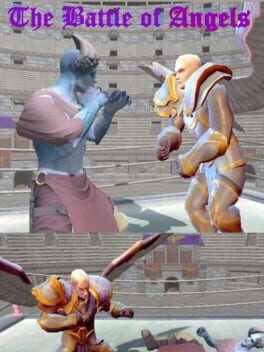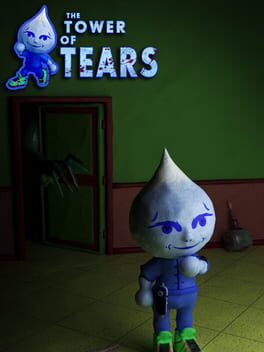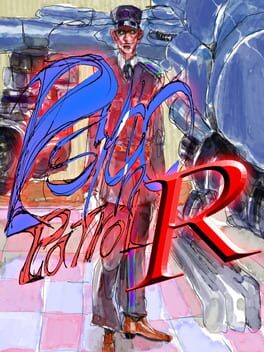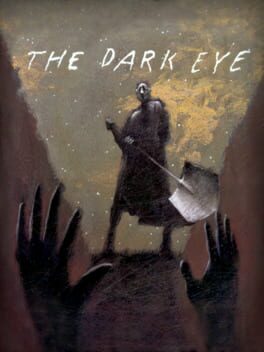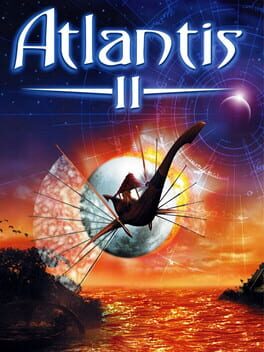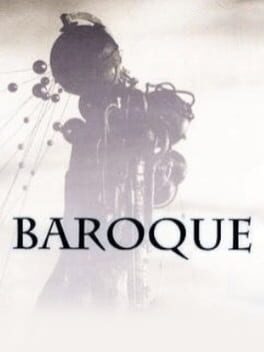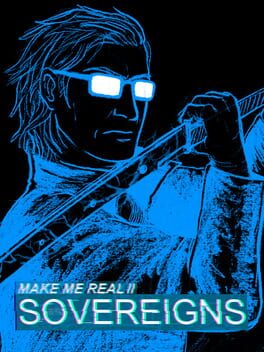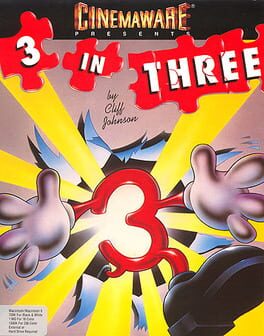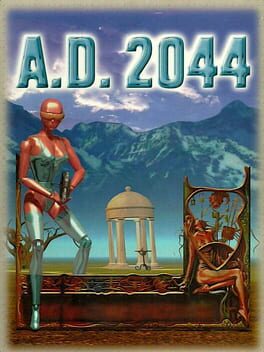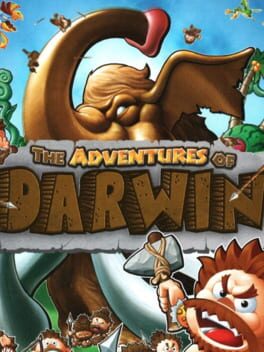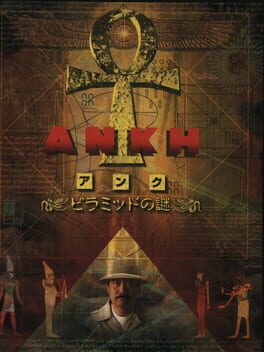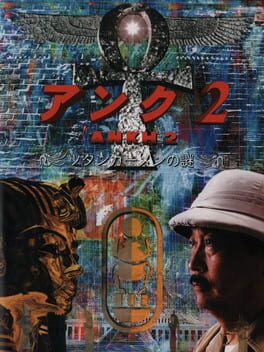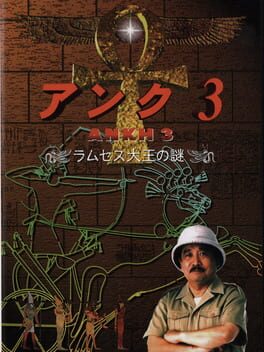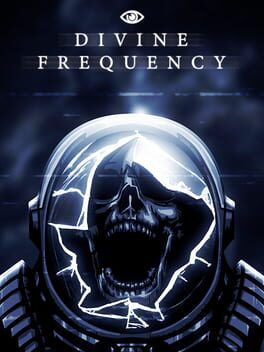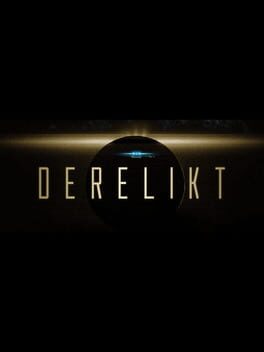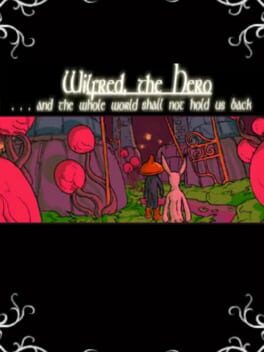windowlight
8 reviews liked by windowlight
Elden Ring
2022
Limgrave probably double-features well with Penda's Fen, if you overlay it semi-transparently or pretend in-game dialogue is its script or something.
The soulsborne death system has a more pronounced effect on roleplay in an open world environment; made me consider why my mage went to fight that crab, and why he would decide against it in an unrelated life. He does not! He always fights the crab, always loses, and if he's lucky he runs away. Its cute.
I also quite like that its characters are not necessarily the 'givers' of their quests and that they wander miles elsewhere without your notice. Truer to life than expected; I hate that they added map indicators later.
Overall a Video Game. Enjoyable in the way PKD adaptations were, sometimes less so.
The soulsborne death system has a more pronounced effect on roleplay in an open world environment; made me consider why my mage went to fight that crab, and why he would decide against it in an unrelated life. He does not! He always fights the crab, always loses, and if he's lucky he runs away. Its cute.
I also quite like that its characters are not necessarily the 'givers' of their quests and that they wander miles elsewhere without your notice. Truer to life than expected; I hate that they added map indicators later.
Overall a Video Game. Enjoyable in the way PKD adaptations were, sometimes less so.
Aquanaut's Holiday
1995
PictoChat
2004
when taking into account all the flaws and masterstrokes in each game touched by the love-de-lic spirit, their totality making every one of them interesting in their own ways, let it be said that this game is kinda incoherent in how its constituent parts are stitched together. i like chulip more for making the town and its residents the center of the world, and how it feels more grounded of a story. even the ways chulip is a mess are more compelling to me than the ways in which moon is a mess.
that being said, in terms of raw passion of its developers and the heat of the moment in which it was made, moon hasnt been touched. its strange, insular kind of innovation came out of testing the hypothesis that video games must be worth /something/, its developers (a fucking SUPERGROUP of a team) expressing their love for the artform by changing the rules so drastically, to surpass everything holding them back. by changing an RPG into an adventure game, by having the player practice patience with the flow of time to understand others, by having the world's characters all driven by this thematic force that the designers desperately wanted to impart on you as something that must exist both inside AND outside the game, despite what other games in its time would have you believe. its "what if games were nice instead of mean" type message may come off as precious and hokey but i think the history around its development as a console game in 1997, and the genre-ambiguous space it establishes—built on later by other love-de-lic games, chulip, endonesia, nishi-directed games at skip—gives moon this mysterious and captivating aura, as well as a radical sincerity to explore into the core of what games really are and what they could be. the final sequence is incredibly poignant to me with this in mind
basically there is no other game that just...radiates heart as glowingly as moon, you can see it and hear it and read it and feel it. this game is the untold spark of so much, as the root of highly creative game design legacies from the names attached to this project. they can possibly make better games in different settings, but moon only could happen this one time.
that being said, in terms of raw passion of its developers and the heat of the moment in which it was made, moon hasnt been touched. its strange, insular kind of innovation came out of testing the hypothesis that video games must be worth /something/, its developers (a fucking SUPERGROUP of a team) expressing their love for the artform by changing the rules so drastically, to surpass everything holding them back. by changing an RPG into an adventure game, by having the player practice patience with the flow of time to understand others, by having the world's characters all driven by this thematic force that the designers desperately wanted to impart on you as something that must exist both inside AND outside the game, despite what other games in its time would have you believe. its "what if games were nice instead of mean" type message may come off as precious and hokey but i think the history around its development as a console game in 1997, and the genre-ambiguous space it establishes—built on later by other love-de-lic games, chulip, endonesia, nishi-directed games at skip—gives moon this mysterious and captivating aura, as well as a radical sincerity to explore into the core of what games really are and what they could be. the final sequence is incredibly poignant to me with this in mind
basically there is no other game that just...radiates heart as glowingly as moon, you can see it and hear it and read it and feel it. this game is the untold spark of so much, as the root of highly creative game design legacies from the names attached to this project. they can possibly make better games in different settings, but moon only could happen this one time.
NieR: Automata
2017
This review contains spoilers
The purpose of a critique is to take something apart to reveal a flawed construction or a shaky foundation, so it’s with some reluctance that I take on a modern classic with only an arm full of rocks to break the windows. I may have personally found this game to be a slog, but its straightforward action doesn’t actually have any fundamental problems. It tells a story with a lot of twists and turns, it develops its characters, there really doesn’t seem to be anything wrong with it. So, here’s the brick I intend to throw at it:
What is Nier: Automata about? Not in terms of plot, what are its themes and core ideas?
This question probably sounds insane. How could you not pick up on its absurdist ideas? How could you not notice how existentialism is core to its central conflict? Well obviously, I did, but the ridiculousness of the question is exactly my point. Nier: Automata leaves so little to the imagination, so little for you to wonder about and consider on your own that it ultimately works against its own interests. Naming someone “2B” in an existential game is a pretty cheeky move, and naming a traitor character “A2” starts to get into eye-rolling territory. When the two protagonists who work for an inscrutable authority wear blindfolds, and the one who left the organization has her eyes open, it's just painfully on the nose. Introducing the machine-fighting heroes as androids themselves, and having them state “There’s no actual meaning behind anything machines do” within the first thirty minutes signposts the direction of the plot so clearly that it kills the intrigue. Examples like these are dotted all over the game, like how the moral absoluteness of Yorha has literally made their base viewable only in black and white, and how most secondary characters are named after philosophers who tangentially relate to the game’s themes. These details don’t draw you in and spark your imagination, but simply highlight how this was written by someone who didn’t want the time they spent reading philosophy to be wasted on people who wouldn’t pick up on messages less subtle than a chainsaw.
This sort of approach affects the gameplay just as much, with the most notable example being how the endings are paced. The first “ending” takes about ten hours to reach, but this is more of an intro than anything. The plot goes on to be resolved in the subsequent endings B through E, with the B ending being the second longest with a run time of six hours. During this time, you play as the sidekick 9S instead of 2B, and essentially replay the entire game with minimal changes other than a repetitive hacking minigame. The purpose was to force players into recognizing all the plot/character details they may have missed the first time around, grinding players’ faces into the story to ensure that they did not miss absolutely anything. Replaying games can be great, and picking up on details you missed is fun, but hiding the resolution to the story behind a boring replay is excessively self-indulgent on the behalf of the developers. This is incredibly damaging to its overall replay value, even when there wasn’t much to begin with, considering how the combat is similarly concerned with ensuring even the least attentive players see everything. The action is very simplistic, and the combination of strong upgrade chips and consumable items only incentivizes players to thoughtlessly break through the game rather than mentally engage with it.
That’s really what all these little nitpicky rocks pile up to become. I may have loved its style, its fashion, its sense of humor, and how it actually tried to do something philosophical, but a game that tries to be about philosophy, yet doesn’t let players think on their own, has an unavoidably detrimental irony. It’s a game that misses its own point, not letting people uncover meaning in a game about uncovering meaning. Even so, the character drama still works. The combat is still fun to watch, and for people who haven’t been exposed to this sort of topic, it wouldn’t feel as patronizing. Most people don’t replay games at all, so even the repetition I found to be so gratuitous could have been an eye-opening experience. Nier: Automata still stands tall in spite of my little complaints, but it’s not exactly a house I want to live in. Some asshole broke all the windows.
What is Nier: Automata about? Not in terms of plot, what are its themes and core ideas?
This question probably sounds insane. How could you not pick up on its absurdist ideas? How could you not notice how existentialism is core to its central conflict? Well obviously, I did, but the ridiculousness of the question is exactly my point. Nier: Automata leaves so little to the imagination, so little for you to wonder about and consider on your own that it ultimately works against its own interests. Naming someone “2B” in an existential game is a pretty cheeky move, and naming a traitor character “A2” starts to get into eye-rolling territory. When the two protagonists who work for an inscrutable authority wear blindfolds, and the one who left the organization has her eyes open, it's just painfully on the nose. Introducing the machine-fighting heroes as androids themselves, and having them state “There’s no actual meaning behind anything machines do” within the first thirty minutes signposts the direction of the plot so clearly that it kills the intrigue. Examples like these are dotted all over the game, like how the moral absoluteness of Yorha has literally made their base viewable only in black and white, and how most secondary characters are named after philosophers who tangentially relate to the game’s themes. These details don’t draw you in and spark your imagination, but simply highlight how this was written by someone who didn’t want the time they spent reading philosophy to be wasted on people who wouldn’t pick up on messages less subtle than a chainsaw.
This sort of approach affects the gameplay just as much, with the most notable example being how the endings are paced. The first “ending” takes about ten hours to reach, but this is more of an intro than anything. The plot goes on to be resolved in the subsequent endings B through E, with the B ending being the second longest with a run time of six hours. During this time, you play as the sidekick 9S instead of 2B, and essentially replay the entire game with minimal changes other than a repetitive hacking minigame. The purpose was to force players into recognizing all the plot/character details they may have missed the first time around, grinding players’ faces into the story to ensure that they did not miss absolutely anything. Replaying games can be great, and picking up on details you missed is fun, but hiding the resolution to the story behind a boring replay is excessively self-indulgent on the behalf of the developers. This is incredibly damaging to its overall replay value, even when there wasn’t much to begin with, considering how the combat is similarly concerned with ensuring even the least attentive players see everything. The action is very simplistic, and the combination of strong upgrade chips and consumable items only incentivizes players to thoughtlessly break through the game rather than mentally engage with it.
That’s really what all these little nitpicky rocks pile up to become. I may have loved its style, its fashion, its sense of humor, and how it actually tried to do something philosophical, but a game that tries to be about philosophy, yet doesn’t let players think on their own, has an unavoidably detrimental irony. It’s a game that misses its own point, not letting people uncover meaning in a game about uncovering meaning. Even so, the character drama still works. The combat is still fun to watch, and for people who haven’t been exposed to this sort of topic, it wouldn’t feel as patronizing. Most people don’t replay games at all, so even the repetition I found to be so gratuitous could have been an eye-opening experience. Nier: Automata still stands tall in spite of my little complaints, but it’s not exactly a house I want to live in. Some asshole broke all the windows.
probably the most important game ever made. if you want proof that video games have reached a "high art" status, this is it; and ironically this is because it pushes itself so deep into the abstract that its almost completely nonsensical, this transcends even any slight sense of lucidity, constantly keeping you engaged, one second you're eating dirt, the next you're moving out of a driveway, and then its dr mario against a giygas background
entire dissolution of the senses and video game structure itself, it is the disseminating the act of games even having a concrete goal- logical conclusion of kubus' ethos for game development, it is both structured and structureless. complete enigma. video games couldve stopped being produced right at the release of this game, and shouldve, because all of what it is capable of is done here a million times
is the structure pointless? is the justification of it pointless? whats the point of either if one or the other of those things is pointless? its entirely like some kind of "mock-epic" for video games taken to an absurdist extreme- its a hero's "journey" except theres no development or relation of any of the segments or exploration of anything thematically, everything is treated with this sort of absurdist and somewhat unnerving detachment, you dont even know if the characters you play as are even the same people, it is Anti-Investment, which is why it is the Ultimate Video Game, this doesnt pretend to be a narrative through mechanics or resonant justification
a borderline plotless journey that takes kubus-ian aesthetics to the extreme, and of course its a masterpiece because of that
entire dissolution of the senses and video game structure itself, it is the disseminating the act of games even having a concrete goal- logical conclusion of kubus' ethos for game development, it is both structured and structureless. complete enigma. video games couldve stopped being produced right at the release of this game, and shouldve, because all of what it is capable of is done here a million times
is the structure pointless? is the justification of it pointless? whats the point of either if one or the other of those things is pointless? its entirely like some kind of "mock-epic" for video games taken to an absurdist extreme- its a hero's "journey" except theres no development or relation of any of the segments or exploration of anything thematically, everything is treated with this sort of absurdist and somewhat unnerving detachment, you dont even know if the characters you play as are even the same people, it is Anti-Investment, which is why it is the Ultimate Video Game, this doesnt pretend to be a narrative through mechanics or resonant justification
a borderline plotless journey that takes kubus-ian aesthetics to the extreme, and of course its a masterpiece because of that
11 lists liked by windowlight
by ToninoMotorino |
147 Games
by Mrtrucktimist05 |
40 Games
by vehemently |
54 Games
by DeltaWDunn |
103 Games
by StardustSummons |
301 Games
by Barmaglot |
1034 Games
by HurtingOtherPPl |
63 Games
by Detchibe |
286 Games
by Liquidrocks |
115 Games
by MendelPalace |
548 Games







